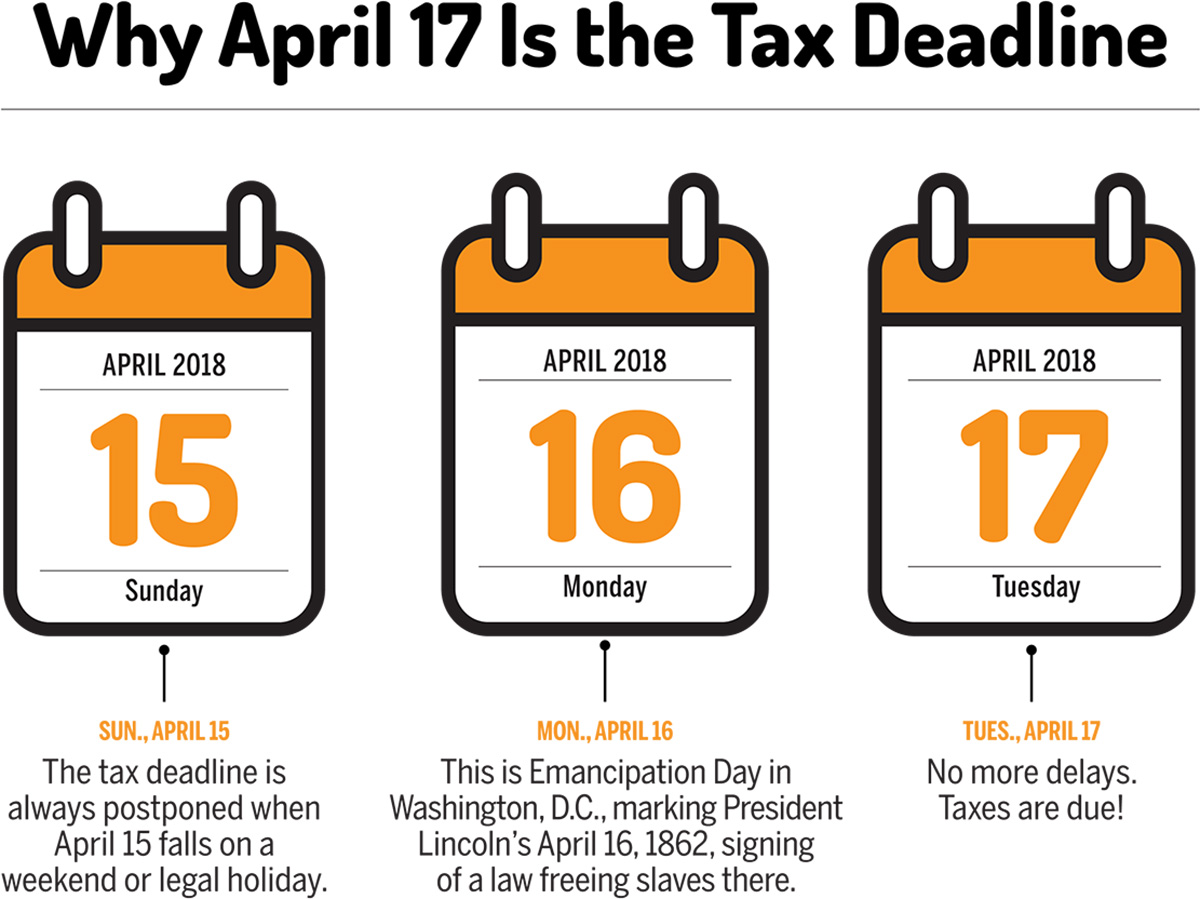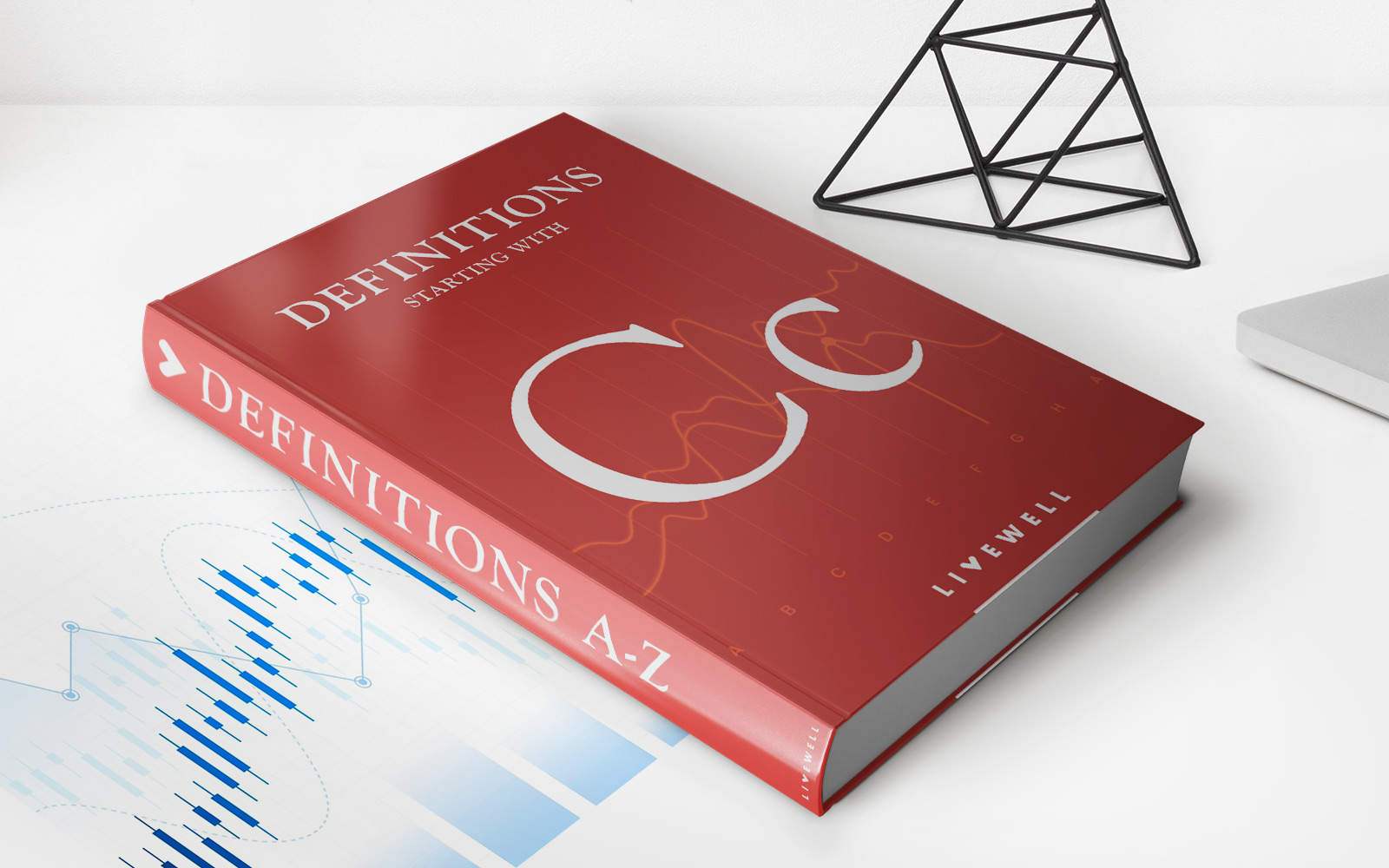Home>Finance>When Are You Not Required To File A Tax Return?


Finance
When Are You Not Required To File A Tax Return?
Published: November 2, 2023
Learn about when you may not be required to file a tax return and save time and effort. Find out finance tips and exemptions related to tax filing.
(Many of the links in this article redirect to a specific reviewed product. Your purchase of these products through affiliate links helps to generate commission for LiveWell, at no extra cost. Learn more)
Table of Contents
Introduction
Filing taxes is an annual obligation for most individuals, but did you know that there are certain circumstances where you may not be required to file a tax return? The Internal Revenue Service (IRS) has established various exemptions based on age, income, filing status, and specific tax situations. Understanding these exemptions can save you time, effort, and even money.
In this article, we will explore the different scenarios in which you may be exempt from filing a tax return. By familiarizing yourself with these exemptions, you can determine whether you meet the criteria and avoid the unnecessary hassle of filing a return when it isn’t required.
While it’s important to note that everyone’s tax situation is unique, and you should consult with a tax professional or use tax preparation software to confirm your specific filing requirements, this article serves as a general guide to help you understand when you may be exempt from filing a tax return.
Let’s dive into the various exemptions that may apply to you and when you might be able to skip filing a tax return.
Qualifying for Tax Filing Exemptions
There are several factors that can determine whether you qualify for tax filing exemptions. These exemptions are designed to reduce the burden on taxpayers who may not meet certain criteria or have specific circumstances that make filing a tax return unnecessary. Let’s explore some of the common exemptions:
- Age-Based Exemptions: Age can play a role in determining whether you need to file a tax return. For example, if you are under the age of 65, single, and your gross income is less than the filing threshold set by the IRS, you may not be required to file. However, if you’re age 65 or older, the income thresholds may differ. Make sure to review the IRS guidelines to determine if you meet the age-based exemption.
- Income Threshold Exemptions: The IRS sets income thresholds each year that dictate whether individuals need to file a tax return. If your income falls below these thresholds, you may be exempt from filing. Keep in mind that the thresholds vary depending on your filing status and age. It’s important to stay updated on the latest IRS guidelines to see if you qualify for the income threshold exemption.
- Ineligible Income Types: Certain types of income may be exempt from being considered taxable. For example, if you receive gifts, inheritances, or certain types of disability income, you may not need to include them in your taxable income calculation. However, it’s essential to understand the specific rules and guidelines for these exclusions to ensure you meet the requirements for exemption.
By meeting one or more of these qualifying factors, you may become eligible for tax filing exemptions. It’s important to note that even if you meet the criteria for exemption, you may still choose to file a tax return. In some cases, filing a return can be beneficial, especially if you are eligible for tax credits or refunds. Determine your eligibility based on the guidelines and consult with a tax professional to make an informed decision.
Age-Based Exemptions
Age can play a significant role in determining whether you need to file a tax return. The Internal Revenue Service (IRS) establishes specific guidelines for different age groups, and meeting these criteria may exempt you from filing. Let’s take a closer look at age-based exemptions:
- Under Age 65: If you are under the age of 65, single, and your gross income falls below the filing threshold set by the IRS, you may not be required to file a tax return. However, it’s important to note that if you earned income through self-employment, you may still need to file even if your income is below the threshold.
- Age 65 or Older: Individuals who are age 65 or older may qualify for higher income thresholds. This means that you can earn a higher amount of income before being required to file a tax return. The exact threshold depends on your filing status and whether you are married or single. By reaching age 65, you may gain additional flexibility and potentially be exempt from filing if your income falls below the designated threshold.
- Retirement Income: Individuals who have retired may have different tax obligations. If you derive income from retirement sources, such as pensions, annuities, or retirement account withdrawals, there are specific tax rules that may apply. These rules consider the type and amount of retirement income you receive, potentially resulting in different filing requirements or exemptions. It’s crucial to understand the IRS guidelines regarding retirement income and consult with a tax professional to assess your filing obligations.
While age-based exemptions can provide relief for certain individuals, it’s important to remember that meeting the age criteria is just one aspect of the exemption. You must also consider your income and other factors to determine your filing requirements accurately.
Always refer to the most recent IRS guidelines and consult with a tax professional to ensure you fully understand your obligations and potential exemptions based on your age and individual circumstances.
Income Threshold Exemptions
Income thresholds established by the Internal Revenue Service (IRS) play a significant role in determining whether individuals need to file a tax return. These thresholds vary based on filing status and age, and meeting them may exempt you from filing. Let’s delve into income threshold exemptions:
- Filing Status and Income Level: Different filing statuses, such as single, married filing jointly, married filing separately, or head of household, have different income thresholds. If your income falls below the threshold designated for your specific filing status, you may be exempt from filing a tax return. It’s important to note that these thresholds can change each year, so staying updated with the current IRS guidelines is crucial.
- Dependent Status and Income: Individuals who are claimed as dependents on someone else’s tax return have different income thresholds compared to non-dependents. If you are a dependent and your income falls below the designated threshold, you may not be required to file a tax return. However, it’s recommended to consult with a tax professional to accurately determine your filing obligations based on your dependent status.
- Self-Employment Income: Self-employed individuals have different income threshold requirements. If you earn income through self-employment, you may be required to file a tax return if your net earnings reach a certain threshold. Self-employment taxes and additional reporting obligations may apply, even if your income falls below the regular filing threshold. It’s crucial to understand the specific rules for self-employment income and consult with a tax professional to determine your obligations accurately.
Income threshold exemptions can provide relief for individuals whose income falls below the designated thresholds. However, it’s important to note that additional factors, such as types of income and deductions, can also influence your filing requirements. Keep in mind that falling below the income threshold does not necessarily mean you shouldn’t file a tax return. In some cases, filing a return voluntarily can help you claim tax credits or deductions that you may be eligible for.
To fully understand your income threshold exemptions and filing obligations, refer to the most recent IRS guidelines and consider seeking advice from a tax professional who can provide personalized guidance based on your specific financial situation.
Ineligible Income Types
When determining your tax filing obligations, it’s crucial to consider the types of income you receive. Not all types of income are subject to taxation, which means you may be exempt from including them in your taxable income calculation. Let’s explore some common ineligible income types:
- Gifts and Inheritances: In general, gifts and inheritances are not considered taxable income. If you received a gift or inherited assets or property, you typically do not need to report them as income on your tax return. However, there may be exceptions and specific rules, especially if the gift or inheritance generates income, such as interest or rental income. Understanding the requirements and consulting with a tax professional is essential to ensure compliance.
- Disability Income: Certain types of disability income may be exempt from taxation. For example, if you receive payments from disability insurance policies that you paid the premiums for with after-tax dollars, those payments are generally not taxable. Social Security disability benefits may also be partially or fully exempt from taxation, depending on your total income and filing status. It’s important to review the specific rules and guidelines outlined by the IRS to determine the taxability of your disability income.
- Life Insurance Payouts: When you receive a life insurance payout, the proceeds are typically tax-free. Whether it’s a death benefit paid out to a beneficiary or cashing in a life insurance policy, these funds are not included in your taxable income. However, keep in mind that any interest earned on the payout may be subject to taxation.
It’s important to emphasize that while certain types of income are generally exempt from taxation, there may be exceptions depending on the specific circumstances and amounts involved. It’s crucial to review the IRS guidelines, consult with a tax professional, and ensure compliance with reporting requirements for all types of income.
By carefully considering ineligible income types and the associated tax rules, you can determine which income should be excluded from your taxable income calculation. However, it’s always advisable to seek guidance from a tax professional to ensure accuracy and compliance with tax regulations.
Filing Status Exemptions
When it comes to filing taxes, your filing status plays a significant role in determining your tax obligations. Different filing statuses have specific requirements and income thresholds that may exempt you from filing a tax return. Let’s examine the exemptions based on filing status:
- Single Filing Status: If you are single and under the age of 65, you may not be required to file a tax return if your income falls below the filing threshold set by the IRS. However, if you are over 65, the income threshold may be higher. Keep in mind that the threshold can vary each year, so it’s important to stay up-to-date with the current guidelines.
- Married Filing Jointly: Married couples filing jointly have different income thresholds compared to single filers. If both you and your spouse are under the age of 65 and your combined income falls below the threshold, you may be exempt from filing. However, if one or both spouses are 65 or older, the income thresholds for exemption may be higher. It’s important to understand the specific guidelines for married filing jointly to determine your filing obligations accurately.
- Married Filing Separately: Married couples who choose to file separately have different income thresholds than those filing jointly. Each spouse is responsible for reporting their own income, and if your income falls below the designated threshold, you may be exempt from filing. However, it’s crucial to consider potential disadvantages of filing separately, such as limitations on certain deductions and credits. Discuss with a tax professional to determine the most advantageous filing status for your situation.
- Head of Household: To qualify for head of household status, you must be unmarried, have paid for more than half of the cost of maintaining a home for yourself and a qualifying dependent, and meet other specific criteria. Head of household filers have different income thresholds compared to other filing statuses, and if your income falls below the designated threshold, you may be exempt from filing. It’s essential to understand the qualifying criteria and review the IRS guidelines to determine if you meet the requirements for head of household filing status.
It’s important to note that even if you fall within the income thresholds for exemption based on your filing status, you may still choose to file a tax return. There may be benefits to filing, such as claiming certain tax credits or receiving a refund. Consider consulting with a tax professional to assess your individual circumstances and make an informed decision on whether to file a tax return.
Understanding the exemptions based on filing status can help you determine whether you meet the criteria for exemption from filing a tax return. Review the IRS guidelines and consult with a tax professional to accurately assess your filing obligations based on your specific filing status.
Non-Resident Exemptions
Non-resident individuals who are living and working in a foreign country for a certain period of time may be eligible for exemptions when it comes to filing a tax return. The Internal Revenue Service (IRS) has specific rules for non-resident taxpayers, and understanding these exemptions can help alleviate the tax burden. Let’s explore non-resident exemptions:
- Substantial Presence Test: The substantial presence test is used to determine if a non-resident individual has spent enough time in the United States during the tax year to be considered a resident for tax purposes. If you pass the substantial presence test and are deemed a resident for tax purposes, you will generally be subject to the same filing obligations as U.S. residents. However, if you fail the substantial presence test and are categorized as a non-resident, you may be exempt from filing a tax return.
- Treaty Benefits: Many countries have tax treaties in place with the United States to prevent individuals from being double-taxed on their income. These tax treaties often provide benefits for non-residents, such as reduced withholding rates or exemptions from certain types of income. By taking advantage of these treaty benefits, non-residents may have reduced tax liabilities or be exempt from filing a tax return altogether.
- Foreign Earned Income Exclusion: The foreign earned income exclusion allows eligible U.S. citizens or resident aliens who live and work overseas to exclude a certain amount of their foreign earned income from U.S. taxation. This exclusion can provide significant tax savings and potentially exempt individuals from filing a tax return if their foreign earned income falls below the exclusion threshold.
It’s important to note that non-resident exemptions can be complex, and the specific rules and requirements vary depending on individual circumstances. Applying for and receiving these exemptions may require careful documentation, adherence to specific guidelines, and adherence to the tax laws of both the United States and the foreign country of residence.
If you are a non-resident individual, it’s essential to consult with a tax professional who specializes in international tax matters. They can provide guidance tailored to your specific situation, helping you understand the exemptions and minimize your tax obligations within the legal framework.
Specific Tax Situations
In addition to age, income, filing status, and residency, there are specific tax situations that may exempt individuals from filing a tax return. Let’s explore some of these situations:
- Low Income: If your income is below the IRS filing threshold, you may be exempt from filing a tax return. The threshold varies based on filing status and age, so it’s important to review the IRS guidelines to determine if you qualify for the low-income exemption.
- Dependents: Dependents, such as children or elderly parents, who have no income or only income from interest, dividends, or capital gains below a certain amount, may be exempt from filing a separate tax return. Instead, their income may be reported on the tax return of the person claiming them as a dependent.
- Combat Zones: Military personnel serving in designated combat zones may be eligible for extensions to file their tax returns. The IRS provides exemptions and special provisions for those serving in combat zones. These exemptions can include additional time to file, reduce financial burdens, and may exempt certain income earned during the time served in the combat zone.
- Disaster Areas: If you live in an area that has been declared a federal disaster area by the President, you may qualify for tax relief. The IRS may grant filing extensions, waive penalties, and offer other provisions to assist taxpayers affected by natural disasters.
It’s important to note that even if you qualify for exemptions in these specific tax situations, there may still be benefits to filing a tax return. For example, you may be eligible for tax credits or refunds that can only be claimed by filing a return. Consult with a tax professional or use tax preparation software to evaluate your individual circumstances and determine the best course of action.
Understanding these specific tax situations and the exemptions they offer can help individuals navigate the complex world of tax regulations and ensure they meet their tax obligations accurately.
Conclusion
While filing taxes is a common annual obligation for most individuals, there are circumstances where you may be exempt from filing a tax return. Understanding these exemptions can save you time, effort, and potentially reduce your tax burden. By familiarizing yourself with age-based exemptions, income threshold exemptions, ineligible income types, filing status exemptions, non-resident exemptions, and specific tax situations, you can determine whether you meet the criteria for exemption.
It’s important to note that even if you meet the requirements for exemption, there may still be advantages to filing a tax return. You may be eligible for tax credits, deductions, or refunds that can only be claimed by filing a return. Reviewing the specific IRS guidelines, consulting with a tax professional, and utilizing tax preparation software can help ensure you make informed decisions regarding your tax obligations.
It’s important to stay updated on the latest IRS guidelines and regulations, as these criteria can change annually. Each individual’s tax situation is unique, and it’s advisable to seek professional advice to accurately assess your exemptions and filing requirements based on your specific circumstances.
By understanding the exemptions and exemptions discussed in this article, you can navigate the complexities of the tax system and make informed decisions regarding your tax obligations.














